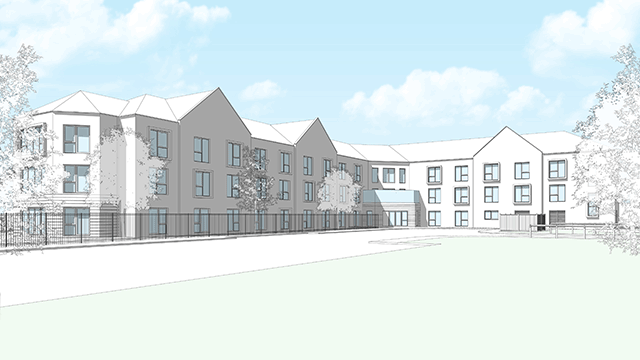A legal row over a block of flats in Maida Vale has reached the Supreme Court, where five judges are being asked to decide an important point on absolute covenants in leases.
The key question raised by the case – Duval v 11-13 Randolph Crescent Ltd [2018] EWCA Civ 2298; [2018] PLSCS 177 – is whether a landlord of a block of flats is entitled to grant a licence to a lessee to carry out work which would breach an absolute covenant contained in a lease of the flat, where the leases of other flats on similar terms require the landlord to enforce covenants at the request of a lessee of one of those other flats.
In October last year, the Court of Appeal ruled in favour of one leaseholder that the landlord of a block of flats could not grant consent to another tenant to carry out works due to absolute covenants in the leases of each flat.
Opening the case before Lady Hale, Lord Carnwath, Lady Black, Lord Kitchin and Lord Sales on behalf of the landlord today, Joanne Wicks QC said that, while the issue before them may not have the “dramatic scope” of other questions posed to the court, it is a matter of “very significant practical importance to thousands of residential lessees”.
She argued that the Court of Appeal decision below has had “far-reaching and unforeseen consequences” and causes “very real practical problems” in the management of blocks of flats.
Expert view
Listen to our podcast in which Laura Bushaway, knowledge development lawyer at Charles Russell Speechlys LLP, explains the significance of the case to landlord and tenant law.
Such absolute covenants are very common in leases in residential blocks of flats, where the landlord typically promises each lessee that it will enforce the covenants in the leases of other tenants.
Landlord 11-13 Randolph Crescent Ltd is a company owned by the lessees of 11-13 Randolph Crescent in Maida Vale, W9. In 2015, the lessee of flat 13 (Mrs Winfield) approached the landlord asking for permission to carry out improvement works to her flat, which would involve cutting into walls. It was willing to grant consent – however, Dr Julia Duval, the lessee of flats 11G and 11H, said that the lease terms prevented it from doing so.
The 125-year leases each contain an absolute covenant prohibiting lessees from cutting into walls or ceilings, and Dr Duval sought a declaration that the landlord could not grant permission to Mrs Winfield.
The case has see-sawed through the courts so far. At first instance, the district judge ruled that the landlord was not entitled to grant a licence for the works to be carried out, but on appeal Judge Parfitt found that it was entitled to do so. However, the Court of Appeal then agreed with Dr Duval.
Now the landlord is asking the Supreme Court for a final decision in its favour.
Speaking ahead of the appeal, Laura Bushaway, a knowledge development lawyer at Charles Russell Speechlys LLP, said that Duval is an important and “potentially very wide-reaching” case.
She said: “Duval created new law because before the Court of Appeal decision it was not generally thought that a landlord would be in breach of any of its covenants in a lease by granting permission to a tenant to do something which was absolutely prohibited.
“It’s very common for landlords to grant consent to tenants to carry out works even though there’s an absolute covenant against alterations in the lease. The landlord may charge the tenant a premium for the grant of a licence.
“However, post-Duval [in the Court of Appeal] the landlord may be in breach of the terms of its lease and face a claim for damages from another leaseholder in the building if it grants consent to a tenant to carry out works where the lease contains an absolute prohibition against alterations.”
The Supreme Court will rule at a later date, likely towards the end of the year or even early in 2020.
To send feedback, e-mail jess.harrold@egi.co.uk or tweet @estatesgazette







